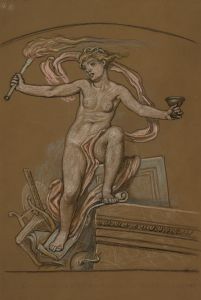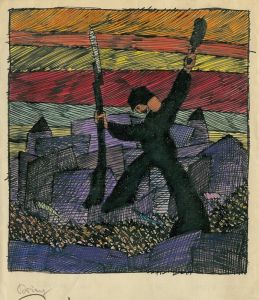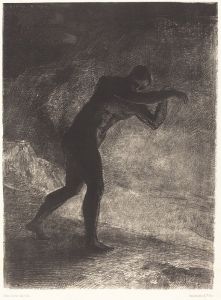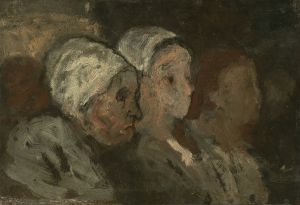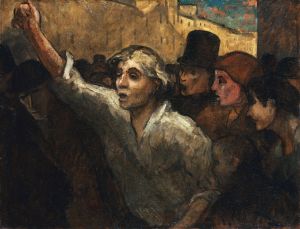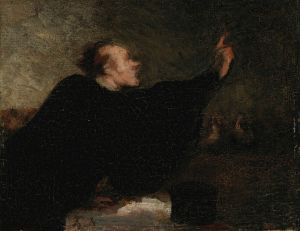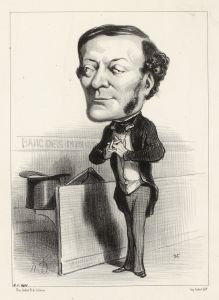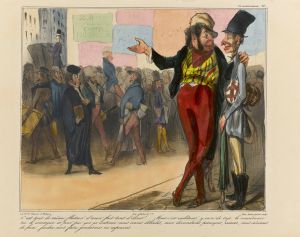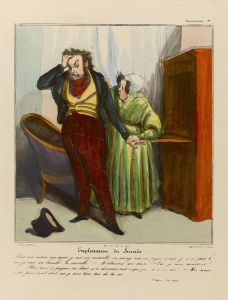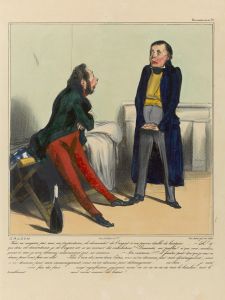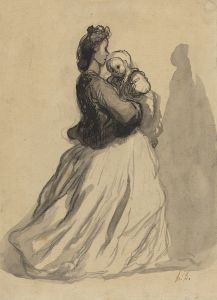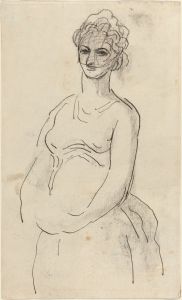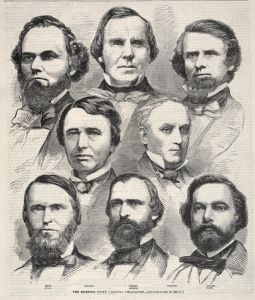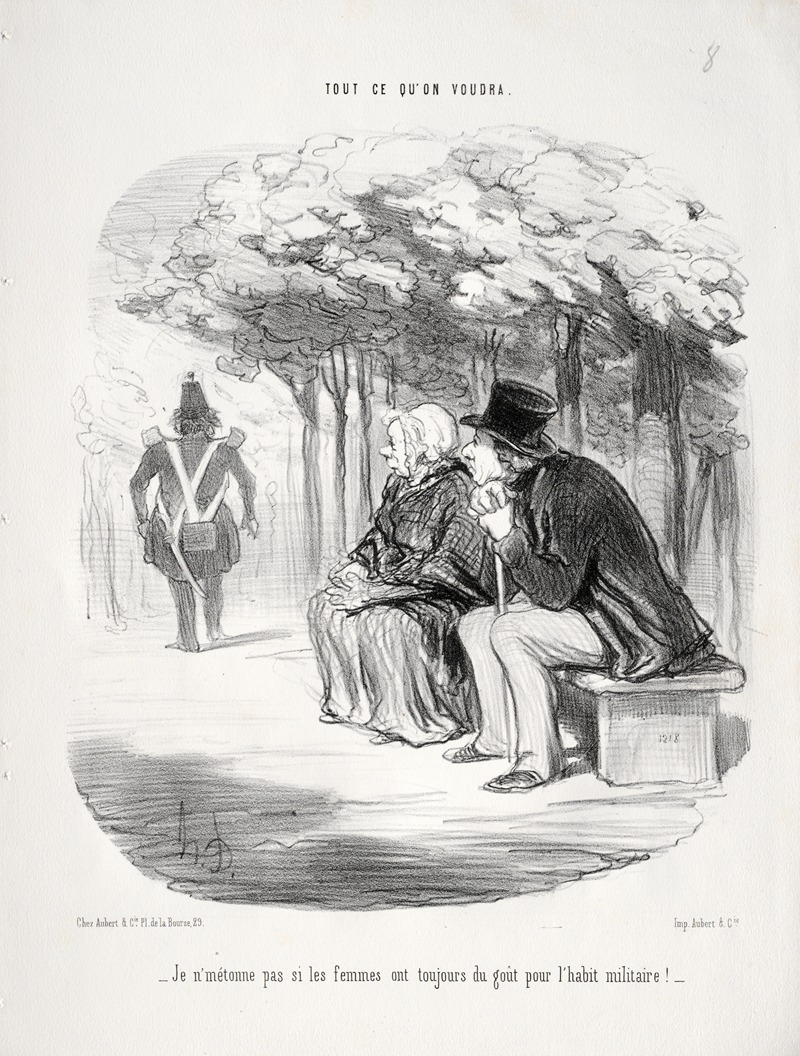
I am not surprised women are still fond of men in uniform.
A hand-painted replica of Honoré Daumier’s masterpiece I am not surprised women are still fond of men in uniform., meticulously crafted by professional artists to capture the true essence of the original. Each piece is created with museum-quality canvas and rare mineral pigments, carefully painted by experienced artists with delicate brushstrokes and rich, layered colors to perfectly recreate the texture of the original artwork. Unlike machine-printed reproductions, this hand-painted version brings the painting to life, infused with the artist’s emotions and skill in every stroke. Whether for personal collection or home decoration, it instantly elevates the artistic atmosphere of any space.
Honoré Daumier was a prominent French artist known for his caricatures, paintings, and sculptures, particularly those that offered social commentary on the political and social issues of his time. Born in 1808, Daumier's work often reflected the complexities of 19th-century French society, and he became renowned for his ability to capture the nuances of human behavior and societal norms through his art.
One of Daumier's works, titled "I am not surprised women are still fond of men in uniform," is a piece that exemplifies his skill in social satire. Although specific details about this particular work are scarce, it is consistent with Daumier's broader oeuvre, which frequently explored themes of authority, power, and the everyday lives of people in France.
Daumier's art was heavily influenced by the political climate of his time. He lived through significant periods of French history, including the July Monarchy, the 1848 Revolution, and the establishment of the Second Empire under Napoleon III. His work often critiqued the political figures and institutions of these eras, using humor and satire to highlight their flaws and the impact of their policies on ordinary citizens.
The theme of men in uniform is a recurring one in Daumier's work, reflecting the militarization of society and the prominent role of the military in French politics and culture during the 19th century. Uniforms were symbols of authority and power, and Daumier's depiction of them often carried an ironic or critical tone, questioning the societal admiration for military figures and the implications of such reverence.
Daumier was a master of lithography, a printmaking technique that allowed for the mass production of images. This medium was particularly suited to his work as a caricaturist, enabling him to reach a wide audience with his satirical illustrations. His lithographs were published in various newspapers and journals, most notably in the satirical publication "La Caricature" and later "Le Charivari," where he gained fame for his biting political and social commentary.
Despite facing censorship and even imprisonment for his work, Daumier continued to produce art that challenged the status quo and provoked thought among his contemporaries. His legacy is that of a pioneering artist who used his talents to critique and reflect on the society in which he lived, leaving behind a body of work that continues to be studied and appreciated for its artistic and historical significance.
In summary, while specific information about the painting "I am not surprised women are still fond of men in uniform" is limited, it can be understood within the broader context of Honoré Daumier's work as a reflection of his engagement with the social and political issues of 19th-century France. His art remains a testament to his skill as a satirist and his commitment to using art as a means of social critique.





